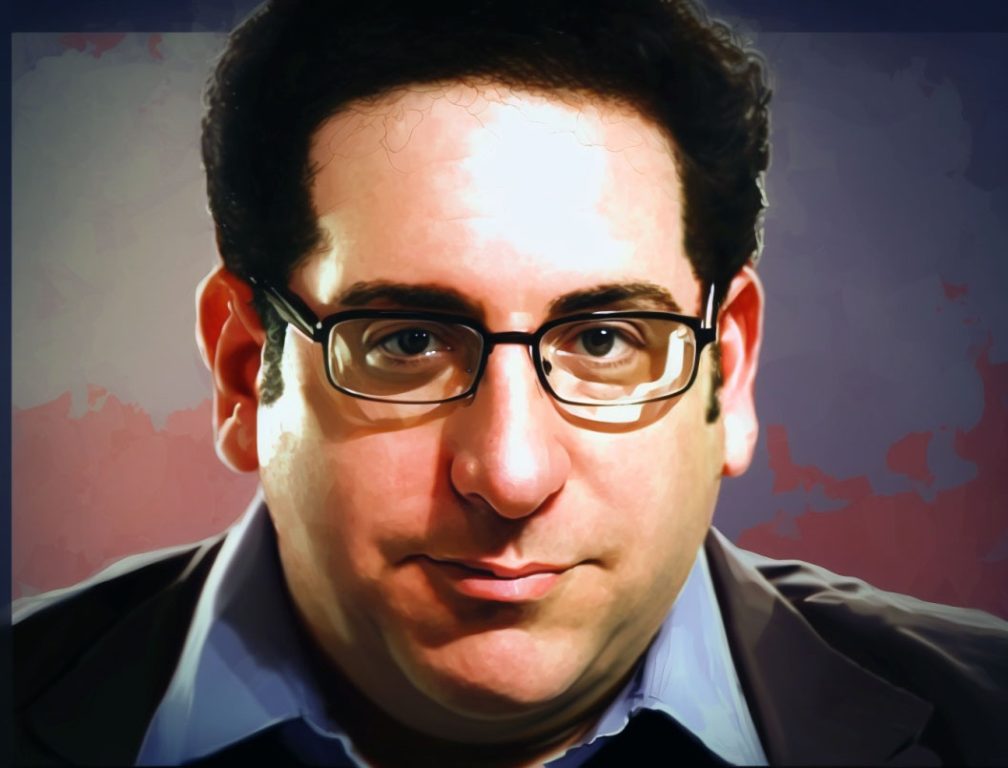An enterprising young man turned black market magnate, Ross Ulbricht reinvented the Silk Road for the digital age.
His darknet marketplace envisioned as a libertarian paradise, sold everything from drugs to weapons to hitman services. And for several years, it enabled him to live a life of anonymous luxury.
Stay One Step Ahead of Cyber Threats
But the highly-publicized takedown of Ulbricht’s Silk Road exposed not only his real name but his lengthy roster of cybercrimes. It’s a cautionary tale for virtual renegades everywhere — and it’s far from over.
Ross Ulbricht at a Glance
- Ross Ulbricht’s science and engineering background, combined with his libertarian economic beliefs, led him to create the Silk Road dark web market in 2011.
- Accessible via the Tor encrypted browser, the Silk Road was intended as a truly free market where anyone could buy anything anonymously with bitcoin.
- Within months of launching, the Silk Road became a notorious one-stop shop for drugs, weapons, forgeries, stolen goods, and illicit services.
- The market operated for over two and a half years, during which Ulbricht amassed over $13 million in commissions from Silk Road transactions.
- Law enforcement finally arrested Ulbricht in October 2013 after a few tiny slip-ups enabled them to piece together his true identity and location.
- Ulbricht was convicted of hacking, distributing narcotics, and numerous other charges, receiving two life sentences without parole.
The Life of Ross Ulbricht
Ulbricht’s Early Life

Born in Austin, Texas, in 1984, Ross Ulbricht had an early interest in science and engineering. He attended one of the US’s top 200 high schools, then received a full scholarship to study physics at the University of Texas at Dallas.
From there, Ulbricht moved on to Pennsylvania State University, where he sought a master’s degree in materials science. It was there that he began exploring libertarian politics, especially the free-market, laissez-faire economic theory of Ludwig von Mises.
After graduating from Penn State in 2009, Ulbricht returned to Austin, determined to forge his own individual path in life. He dabbled unsuccessfully in day trading and started a short-lived video game company, then partnered with a friend to launch an online used bookstore.
Meanwhile, he continued to explore his libertarian ideals, growing ever more resentful of how the current system worked. It forced and coerced people into earning, managing, and spending their money in narrow, prescribed ways — and Ulbricht knew that a radical change had to occur.
The Dawn of the Silk Road
In his diary, Ulbricht detailed an idea for a new project: an online marketplace, fully anonymous, where anybody could buy anything from anywhere. Transactions would be untraceable, and there would be no way for governments or other authorities to control the market or its users.
At the same time, he learned about two technologies that could enable this vision: Tor, an anonymous, encrypted network of so-called “onion” sites commonly referred to as the dark web, and bitcoin, a relatively new virtual currency that required no personal information to use.
Though Ulbricht had no prior programming experience, he was determined to realize his dream. And in February of 2011, he finally launched his creation: the Silk Road anonymous market.
He named it after the ancient Eurasian trade route network that had been a source of inspiration for him: a massive web of free trade with no borders, no regulations, and no paper trails.
As administrator of the Silk Road, Ulbricht gave himself a referential name as well: Dread Pirate Roberts, a character from the film The Princess Bride.
Running the Silk Road

The Silk Road had only a few rules. Users were to uphold any agreements they made and were not allowed to sell things that could “harm or defraud” others, such as weapons or assassination contracts.
In practice, however, Ulbricht found these rules difficult to enforce.
Within a few months of its launch, the Silk Road had thousands of items, both legal and illegal, for sale: everything from hitmen-for-hire to banned energy drinks to counterfeit money to modded guns.
But the most popular category, by far, was drugs. An estimated 70% of Silk Road listings were drugs, and the market soon became known as a no-holds-barred drug emporium.
Websites like Gawker started publishing articles about the Silk Road, giving Ulbricht’s creation an enormous new audience — though not necessarily a good one. US Senator Charles Schumer, upon learning of the Silk Road, urged the Department of Justice and the Drug Enforcement Administration to shut the site down.
This was easier said than done, as the Silk Road’s servers were dynamic and masked by Tor’s encryption. Authorities switched gears to target individual Silk Road buyers and sellers, who were more likely to slip up and reveal identifying information than the market itself.
Meanwhile, Ulbricht was living in San Francisco, basking in his newfound bitcoin fortune. He earned a commission on each Silk Road sale, amassing over $13 million in less than three years.
But his success wouldn’t last for long.
Tracing Ross Ulbricht
The Silk Road investigations launched by various law enforcement agencies never turned up very much information at the time. But in 2013, piece by piece, the authorities put together the true identity of the Dread Pirate Roberts.
Ulbricht had started hiring new Silk Road administrators to lighten his workload, which had grown unsustainably as the market’s popularity boomed. One of these new administrators was an undercover DEA agent who analyzed Ulbricht’s chat timestamps and concluded that he was located in the Pacific time zone.
Meanwhile, the FBI looked deeper into the site’s code and found a lead: the CAPTCHA used by the Silk Road had a data leak, and that data included the IP address of one of the Silk Road’s servers. The server, located in Iceland, was seized, and authorities used the data from it to further bolster their search.
But the final nail in the coffin for Ulbricht was almost painfully simple.
Ulbricht’s Last Stand

At the time of the Silk Road’s launch, a person with the username “altoid” had posted a thinly-veiled ad for the site in a chat room. The post was discovered by Gary Alford, an IRS investigator who was working with the DEA to bring down the Silk Road.
Alford, thinking that “altoid” may have had insider knowledge of the Silk Road, scoured the user’s other posts. Finally, he struck gold.
In a since-deleted post that lived on in a quote from another user, “altoid” asked the forum for programming help and gave his email address: [email protected].
Further tracing revealed even more links: Ulbricht’s home address was just a few blocks from an internet cafe whose IP address was associated with Dread Pirate Roberts.
Additionally, just a couple of months prior, a package containing fake IDs and addressed to Ulbricht, was seized at the Canadian border. When Ulbricht was questioned about the package by Homeland Security agents, he had mentioned the Silk Road unprompted.
It was enough evidence for an arrest. On October 2, 2013, the FBI took Ulbricht into custody, seized his laptop and his nearly $30 million in bitcoins, and shut down the Silk Road for good.
Ulbricht on Trial
Ulbricht was ultimately charged with seven crimes, including distributing narcotics, conspiring to commit money laundering, conspiring to traffic false identity documents, and conspiring to commit computer hacking.
Prosecutors also claimed that Ulbricht had attempted (unsuccessfully) to hire someone to commit six murders. However, those accusations never materialized into actual charges.
The other seven charges, though, were all too real.
Though Ulbricht told the court that the Silk Road was about libertarianism and freedom rather than drugs and crime, the judge and jury were not persuaded. On February 4, 2015, over a year after his arrest, Ulbricht was convicted of all charges.
Three months later, Ulbricht learned his sentence: two life terms in prison without parole, as well as a $183 million fine.
What’s Next for Ross Ulbricht

That fine, at least, was resolved in 2021, when the government located and seized over 50,000 bitcoins that had been stolen from Ulbricht the Silk Road back in 2013. The bitcoins were now worth nearly $3.4 billion, and Ulbricht agreed that the government could keep them, settling his debt and then some.
But Ulbricht’s prison sentence remained in place. After exhausting his options for appeals, he’s set to spend the rest of his life behind bars.
He intends, though, to make the most of it: he’s returning to school to get a master’s degree in psychology, with which he hopes to improve the mental health of his fellow prisoners. And he’s even released a series of NFTs worth over $6 million, with proceeds going to charities for children with parents in prison.
The Silk Road’s legacy isn’t over yet, either: numerous copycat markets fashioned in its image have come and gone from the dark web. It seems that despite Ulbricht’s slip-ups, his vision of an anonymous, decentralized, truly free online marketplace lives on.
Ross Ulbricht: The Idealist in too Deep
Ross Ulbricht’s journey from science-minded whiz kid to international black market kingpin serves as a cautionary tale in many ways — don’t commit cybercrimes, for one.
But it also illustrates a lesson that we can all learn from. When it comes to cybersecurity, no matter how advanced or anonymous you think you are, you’re only one exposed IP address or email away from being compromised.
And for better or worse, Ulbricht’s time as the Dread Pirate Roberts seems certain to become a landmark of cybercrime history: a modern-day Icarus who, lured into complacent idealism, flew too close to the sun.
One Mistake Took Down this 20-Year-Old Dark Web Drug Lord (Video)
"Amateurs hack systems, professionals hack people."
-- Bruce Schneier, a renown computer security professional






